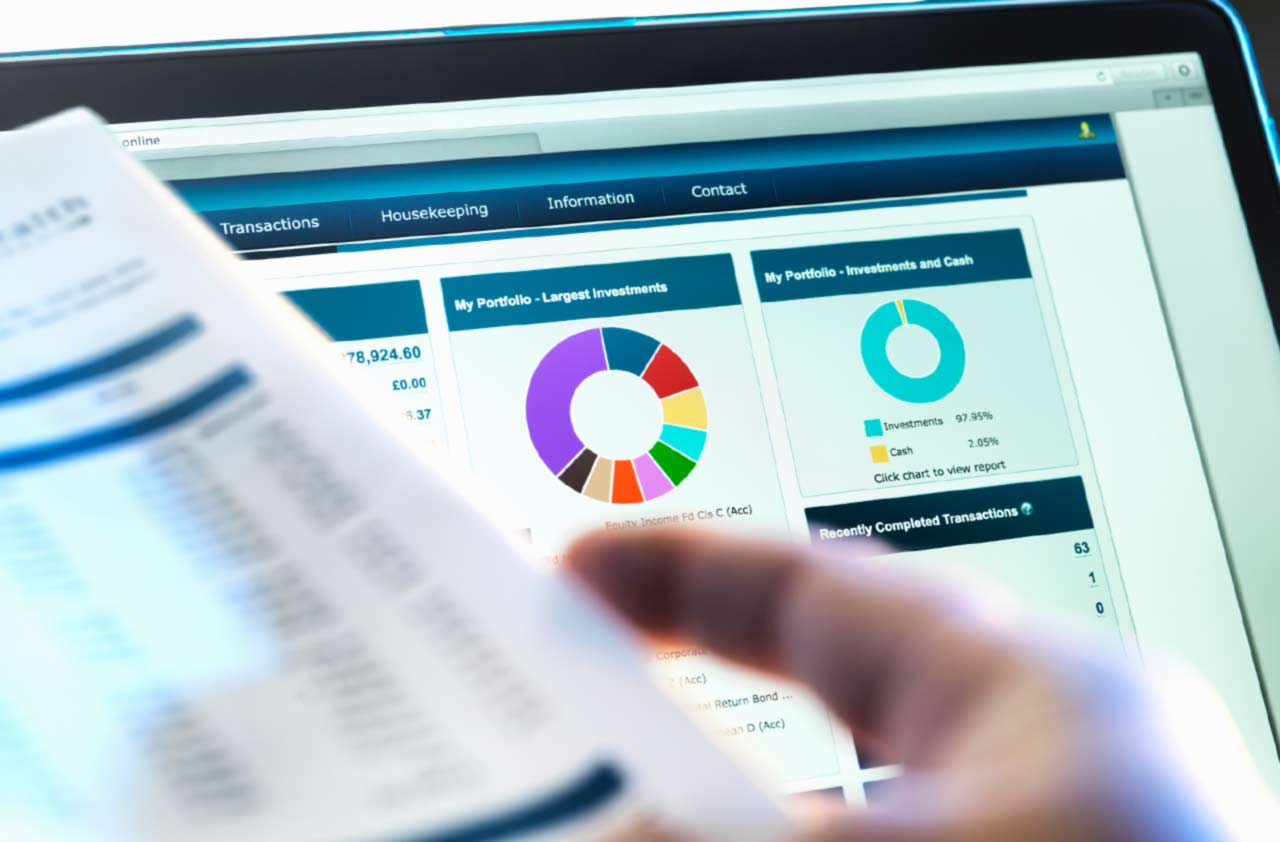8 Financial Pros Share the Money Moves You Must Make Before 2018
In a few months, you’ll likely be inundated with posts, articles and videos about how you can make 2018 the best year yet.


Profit and prosper with the best of Kiplinger's advice on investing, taxes, retirement, personal finance and much more. Delivered daily. Enter your email in the box and click Sign Me Up.
You are now subscribed
Your newsletter sign-up was successful
Want to add more newsletters?

Delivered daily
Kiplinger Today
Profit and prosper with the best of Kiplinger's advice on investing, taxes, retirement, personal finance and much more delivered daily. Smart money moves start here.

Sent five days a week
Kiplinger A Step Ahead
Get practical help to make better financial decisions in your everyday life, from spending to savings on top deals.

Delivered daily
Kiplinger Closing Bell
Get today's biggest financial and investing headlines delivered to your inbox every day the U.S. stock market is open.

Sent twice a week
Kiplinger Adviser Intel
Financial pros across the country share best practices and fresh tactics to preserve and grow your wealth.

Delivered weekly
Kiplinger Tax Tips
Trim your federal and state tax bills with practical tax-planning and tax-cutting strategies.

Sent twice a week
Kiplinger Retirement Tips
Your twice-a-week guide to planning and enjoying a financially secure and richly rewarding retirement

Sent bimonthly.
Kiplinger Adviser Angle
Insights for advisers, wealth managers and other financial professionals.

Sent twice a week
Kiplinger Investing Weekly
Your twice-a-week roundup of promising stocks, funds, companies and industries you should consider, ones you should avoid, and why.

Sent weekly for six weeks
Kiplinger Invest for Retirement
Your step-by-step six-part series on how to invest for retirement, from devising a successful strategy to exactly which investments to choose.
In a few months, you’ll likely be inundated with posts, articles and videos about how you can make 2018 the best year yet. But why wait until after Jan. 1 to get your money in order for the new year?
Being proactive and taking the right steps now can help set you up for more success in 2018. With that in mind, I reached out to my peers and colleagues to collect their best tips so that you could make all the right money moves today.
Here’s what they advise doing for your financial well-being before 2018 rolls around.

Check on Your Asset Allocation
“The end of the year presents a great opportunity to reassess your investment portfolio to ensure your asset allocation hasn’t drifted too far away from where it should be, which could potentially increase the level of risk in your portfolio.
“If various asset classes or securities have drifted significantly, there is likely an opportunity to harvest tax losses to offset any potential gains. Be careful not to trigger a wash sale, which occurs when you buy the same security within 30 days.”
— Matt Cosgriff, Financial Adviser at BerganKDV

Don’t Miss Your RMDs
“If you’re over 70½ years old, make sure you withdraw at least the required minimum distribution (or RMD) from any tax-deferred retirement accounts, like 401(k)s or IRAs. The tax penalty for missing the Dec. 31 deadline is a dizzying 50%!”
— Amy Hubble, Principal Adviser at Radix Financial

Max Out Your Retirement Account Contributions
“Calculate how much you can increase your savings before the end of 2017 and get the most out of your retirement plans.
“Take a look at your most recent investment statements. How much more could you save during the last few months of 2017? The annual contribution limit for traditional and Roth IRAs is $5,500, with an additional $1,000 catch-up contribution allowed for those 50 and older.
“For those saving through an employer-sponsored retirement plan like a 401(k), the annual contribution limit for 2017 is $18,000 (plus a $6,000 catch-up if you’re 50 or older).”
— Benjamin Brandt, CFP® and President of Capital City Wealth Management

Self-Employed? Handle Your Tax Obligations
“Pay estimated quarterly taxes before year’s end. For 1099 employees and business owners, paying quarterly estimated taxes in December (vs. paying them in January) allows individuals and families who itemize their taxes to get an extra deduction if they pay before the end of the year.”
— Eric Roberge, CFP® and founder of Beyond Your Hammock

Get the Most Out of Your FSA
“Make sure you book all your medical appointments before the end of the year, before your deductible resets in January (as many, but not all, do). This will also give you a chance to spend any Flexible Spending Account (FSA) money you haven't used yet.”
— Pamela Capalad, Founder & Financial Planner at Brunch & Budget

Review Your Monthly Expenses (and Make Adjustments Now)
“Thinking about next year’s goals is always an exciting process. But before you get so caught up in the future, know that the end of the year is a crucial time to assess if you're paying way too much on your monthly expenses.
“Reviewing your insurance policies (life, auto, homeowner's), household bills and other expenses can often reveal areas where you can save big in the coming year.”
— Jeff Rose, CFP® of Alliance Wealth Management LLC

Look into Tax-Loss Harvesting
“Reduce your taxes on investment gains. While you shouldn’t undercut your investment plan or goals to reduce taxes, tax-loss harvesting is when you offset the taxable capital gains that you’ve had throughout the year on your investments by selling investments that have lost value.
“The realized capital losses help to reduce the taxes owed on the gains. This has to be done by Dec. 31.”
— Mary Beth Storjohann, CEO & Founder of Workable Wealth

Build a Better Budget
“It doesn't matter if you’re a thousandaire or a millionaire: Everyone needs a budget. If you’re not sure where your money is going, the solution is the b-word. Budget! Commit the last few months of the year on figuring out the best budget or cash-flow program for you and your family so you can start 2018 on the right financial track. The best budgeting tool I've found is YNAB.com.”
— Rianka R. Dorsainvil, CFP®, Founder and President of Your Greatest Contribution LLC

Take a Moment to Think of Others
These experts raise important points and critical money moves to make that can help you grow wealth — and stay wealthy.
But we don't just earn, save and invest our money. Most of us want to help others, and that leads us to mindfully give some of our wealth to causes that matter to us, too.
The end of the year is a great time to consider making charitable contributions to reduce your tax obligation and give back to society. Charitable giving is also a great educational tool and a fun way to get the whole family involved.
Here’s how: Ask your children to research organizations on a site like Charity Navigator and propose a charity to donate to this year.
Not only are you helping to develop good money habits in your kids from an early age, but you're including them in important conversations that can bring your family closer together.
To see the original version of this article, click HERE.
Taylor Schulte, CFP®, is founder and CEO of Define Financial, a fee-only wealth management firm in San Diego. In addition, Schulte is the founder of StayWealthySanDiego.com, where he is dedicated to helping consumers maximize their wealth. He has been recognized as a top 40 Advisor under 40 by "Investment News" and a 2017 "Young Advisor to Watch" by "Financial Advisor Magazine."
Profit and prosper with the best of Kiplinger's advice on investing, taxes, retirement, personal finance and much more. Delivered daily. Enter your email in the box and click Sign Me Up.

Taylor Schulte, CFP®, is founder and CEO of Define Financial, a fee-only wealth management firm in San Diego. In addition, Schulte hosts The Stay Wealthy Retirement Podcast, teaching people how to reduce taxes, invest smarter, and make work optional. He has been recognized as a top 40 Under 40 adviser by InvestmentNews and one of the top 100 most influential advisers by Investopedia.
-
 The New Reality for Entertainment
The New Reality for EntertainmentThe Kiplinger Letter The entertainment industry is shifting as movie and TV companies face fierce competition, fight for attention and cope with artificial intelligence.
-
 Stocks Sink With Alphabet, Bitcoin: Stock Market Today
Stocks Sink With Alphabet, Bitcoin: Stock Market TodayA dismal round of jobs data did little to lift sentiment on Thursday.
-
 Betting on Super Bowl 2026? New IRS Tax Changes Could Cost You
Betting on Super Bowl 2026? New IRS Tax Changes Could Cost YouTaxable Income When Super Bowl LX hype fades, some fans may be surprised to learn that sports betting tax rules have shifted.
-
 States That Tax Social Security Benefits in 2026
States That Tax Social Security Benefits in 2026Retirement Tax Not all retirees who live in states that tax Social Security benefits have to pay state income taxes. Will your benefits be taxed?
-
 What to Do With Your Tax Refund: 6 Ways to Bring Growth
What to Do With Your Tax Refund: 6 Ways to Bring GrowthUse your 2024 tax refund to boost short-term or long-term financial goals by putting it in one of these six places.
-
 What Does Medicare Not Cover? Eight Things You Should Know
What Does Medicare Not Cover? Eight Things You Should KnowMedicare Part A and Part B leave gaps in your healthcare coverage. But Medicare Advantage has problems, too.
-
 12 Great Places to Retire in the Midwest
12 Great Places to Retire in the MidwestPlaces to live Here are our retirement picks in the 12 midwestern states.
-
 15 Cheapest Small Towns to Live In
15 Cheapest Small Towns to Live InThe cheapest small towns might not be for everyone, but their charms can make them the best places to live for plenty of folks.
-
 15 Reasons You'll Regret an RV in Retirement
15 Reasons You'll Regret an RV in RetirementMaking Your Money Last Here's why you might regret an RV in retirement. RV-savvy retirees talk about the downsides of spending retirement in a motorhome, travel trailer, fifth wheel, or other recreational vehicle.
-
 The 24 Cheapest Places To Retire in the US
The 24 Cheapest Places To Retire in the USWhen you're trying to balance a fixed income with an enjoyable retirement, the cost of living is a crucial factor to consider. Is your city the best?
-
 The Six Best Places to Retire in New England
The Six Best Places to Retire in New Englandplaces to live Thinking about a move to New England for retirement? Here are the best places to land for quality of life, affordability and other criteria.
